Lethabo Moroka
7 months, 3 weeks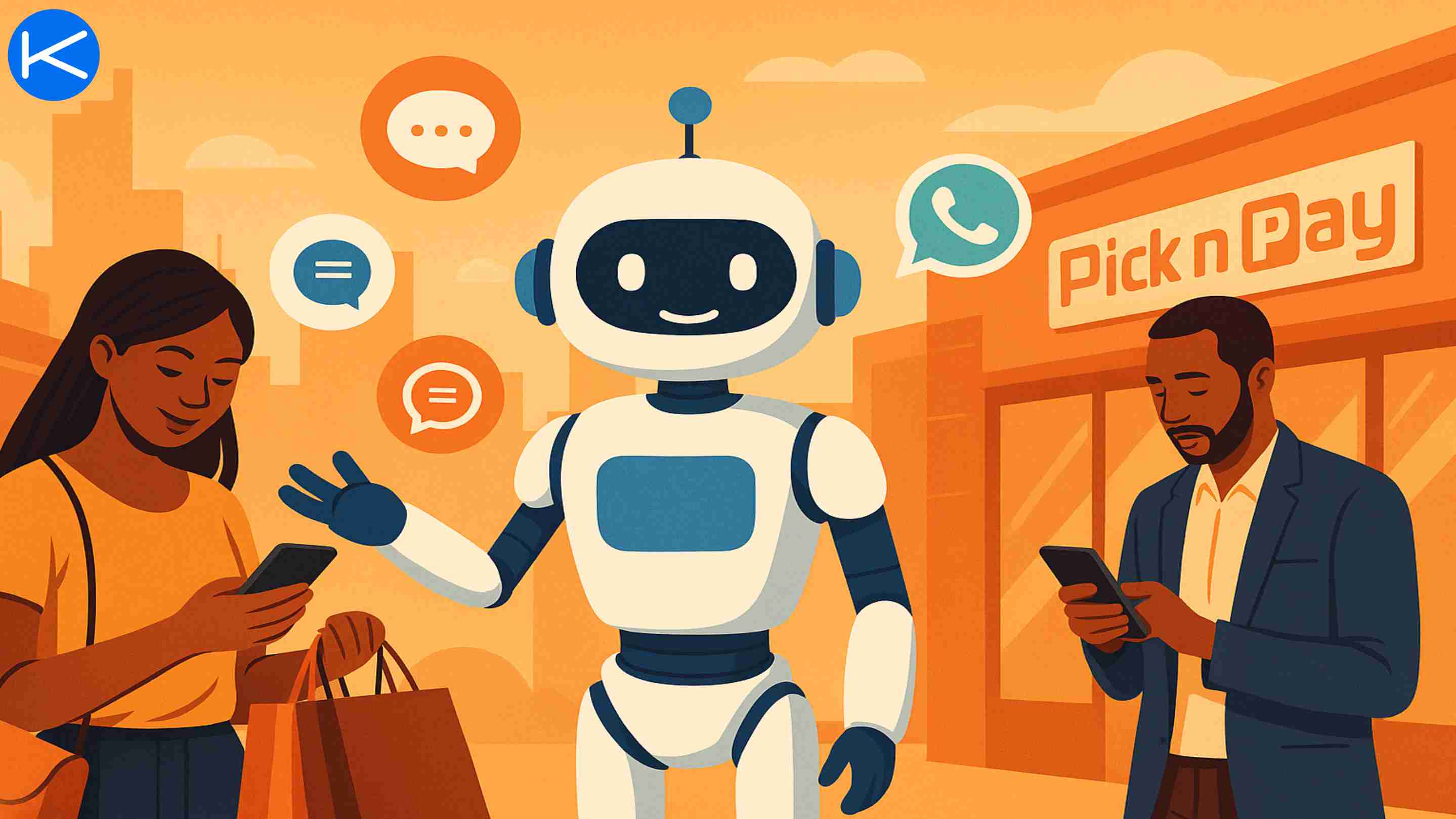
Chatbots and the South African Retail Revolution
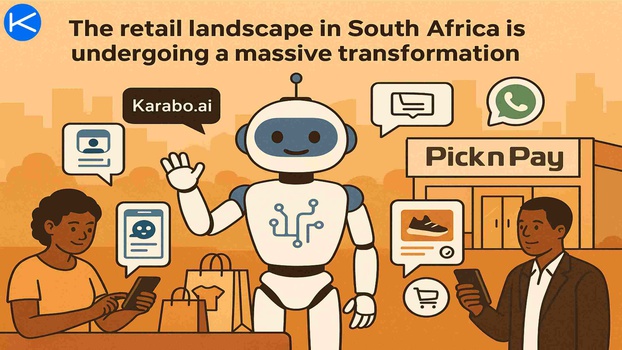
The retail landscape in South Africa is undergoing a massive transformation, fuelled by rapid technological adoption and a growing hunger among local consumers for convenience, speed, and personalisation. One of the most powerful drivers behind this retail revolution is the rise of chatbots — AI-powered assistants that can answer questions, recommend products, resolve complaints, and process orders, all in real-time. From WhatsApp chatbots that help spaza shops process sales, to integrated e-commerce assistants used by major retailers like Pick n Pay or Shoprite, these digital agents are changing how Mzansi buys and sells. The beauty of chatbots lies in their ability to operate 24/7, handle hundreds of customer interactions at once, and speak to customers in a way that feels natural and local. This is especially important in a country as diverse and vibrant as ours, where language, tone, and cultural relevance play a huge role in customer satisfaction. With platforms like Karabo.ai leading the charge, it's now possible for even small kasi businesses to afford and deploy AI assistants that would have seemed impossible a few years back. This blog unpacks how chatbots are reshaping the South African retail sector, explores the impact on SMEs and big chains alike, and explains why ignoring this technology could leave businesses behind. Whether you're running a local boutique, a supermarket chain, or an online store from your backyard, understanding this retail chatbot wave is critical for staying relevant. Let's dive deep into how this AI-powered tool is unlocking a new era of sales, customer service, and business growth across Mzansi. It’s a revolution that’s not just knocking – it’s already in the room.
The Rise of AI in SA Retail
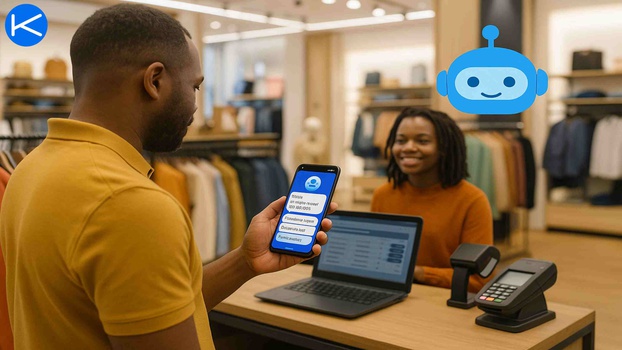
South Africa has always been a country of hustle — from township entrepreneurs to mall-based giants. But the hustle is getting smarter. Artificial Intelligence (AI), once reserved for international tech giants, has made its way into our local markets, with chatbots leading the charge. What used to be done manually — greeting customers, tracking stock, managing queries — is now being streamlined through AI tools. This shift is especially visible in retail where competition is stiff, and the customer’s attention span is shrinking.
Retailers in South Africa are using AI chatbots to reduce queues, cut response times, and keep customers engaged around the clock. Instead of waiting for a call centre agent to be available, customers can now simply type their question into WhatsApp or a website pop-up and get immediate answers. For stores with large catalogues or complex offerings, this becomes a lifesaver. More importantly, it creates a smoother experience that often leads to higher sales conversion rates.
The rise of these tools is partly due to platforms like Karabo.ai, which have made chatbot creation as simple as setting up a Facebook profile. Small business owners with no coding background can now build bots that handle bookings, answer FAQs, and even upsell their products. With this kind of accessibility, the technology is no longer reserved for Silicon Valley – it's accessible from Soweto to Stellenbosch. That’s a game-changer for South African retail, where digital literacy is growing but still uneven.
We’re also seeing increased collaboration between retail brands and tech start-ups. From loyalty programmes to product launches, AI bots are being plugged into marketing campaigns in a way that feels modern, personal, and effective. Instead of generic email newsletters, customers now get tailor-made product suggestions via chat. And because the bots can learn from past behaviour, each interaction becomes smarter over time. This fusion of tech and commerce is fast becoming the norm in the local scene.
Why South African Consumers Love Chatbots
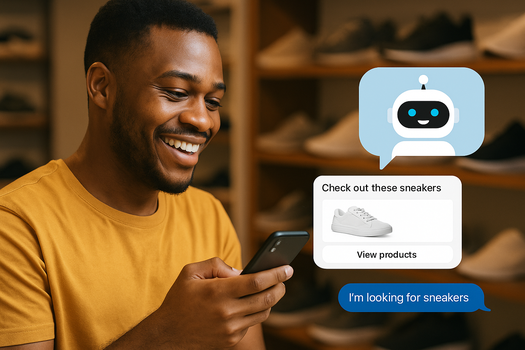
Mzansi consumers are savvy. They want answers fast, service that speaks their language, and platforms that work on mobile first — because let’s face it, that’s how most of us access the internet. Chatbots tick all these boxes. They're available 24/7, they can handle everything from product questions to order tracking, and they often do so in local lingo. This local flavour is key to why South Africans are embracing the chatbot experience.
Imagine you're a shopper in Alexandra looking for a new pair of tekkies. Instead of navigating a clunky website, you pop open WhatsApp, message a bot, and get product suggestions in seconds. You don’t need airtime, just data — and since most bots are light and quick, they work well even with slow internet. This blend of accessibility and convenience is making chatbots the go-to solution for many shoppers across age groups.
Another big win is the level of personalisation. South Africans are not fans of one-size-fits-all messaging. We love feeling like the brand “gets us” — whether it's recommending skincare for African skin or suggesting braai gear during long weekends. AI chatbots, when trained well, can deliver exactly this level of personal touch. They can remember preferences, greet you by name, and tailor their tone to your shopping style.
There’s also a strong sense of trust that comes from conversational shopping. Instead of clicking through pages and guessing what product is right, you ask a chatbot — just like you’d ask a friend. And when that chatbot responds in isiZulu, Tswana or even township slang, it builds a connection that traditional retail marketing can’t match. This is one of the reasons chatbot usage in South Africa is growing far faster than in many Western markets.
Karabo.ai’s Role in Localising Retail AI
Karabo.ai is playing a pivotal role in this movement by building bots that actually understand South African businesses and customers. Unlike global chatbot platforms that focus on generic templates, Karabo.ai comes with pre-built modules tailored to our local industries. For example, their chatbot templates for salons, delivery services, and online boutiques come with features that speak directly to how South Africans do business — whether it’s asking for EFT proof or delivering to kasi addresses.
The platform is designed with local entrepreneurs in mind. You don’t need to know how to code. You don’t even need a laptop — you can launch your chatbot straight from your phone. This lowers the barrier for entry drastically, allowing hairdressers, plumbers, or fashion designers in townships to operate like digital pros. It’s about democratising technology so that everyone can win — not just the big guys with tech budgets.
Karabo.ai also places strong emphasis on language diversity. Their bots can be trained to understand and respond in isiXhosa, Afrikaans, or even hybrid township English. This is a critical feature for any South African retail experience. If your customers speak in vernac or code-switch, your chatbot should too. Karabo understands this deeply and has made it easy to build bots that "speak Mzansi".
On top of that, their team offers ongoing support and localised training — something most global chatbot companies don’t. They help business owners improve their bot flows, analyse customer feedback, and update scripts for seasonal campaigns. Whether it's a Black Friday rush or a January back-to-school sale, Karabo.ai makes sure your chatbot is ready to drive real results.
Transforming Customer Support into Sales
In the past, customer support was treated like a cost centre — a grudge expense that didn’t directly make money. But with chatbots, especially the ones powered by AI like Karabo’s, support becomes a sales engine. These bots not only solve problems, but also cross-sell, upsell, and re-engage customers who might’ve otherwise left frustrated or empty-handed.
Let’s say a customer wants to return a pair of shoes. Instead of having to call or email, they talk to your chatbot. The bot quickly processes the return, but then goes a step further: it suggests a better-fitting size or a new colour option. Maybe it even throws in a discount code. Suddenly, what could have been a lost sale becomes a second chance to impress and retain the customer.
Bots can also follow up on abandoned carts, a massive issue for online retailers in SA. A quick WhatsApp message saying “Hey Thando, you forgot this in your cart — we’re keeping it aside for you with 10% off” can do wonders. Because it’s a chat message and not an email, it gets seen and responded to faster. This helps increase conversions and recover lost revenue effortlessly.
More than anything, bots create consistency. Human staff might forget to follow up or get tired after a long shift. Bots don’t. They send reminders, handle requests, and keep customers happy without missing a beat. And since they're backed by data, you can measure everything — from resolution times to which upsell messages convert the best. This helps refine your retail strategy with every interaction.
WhatsApp Chatbots in Townships and Rural Retail
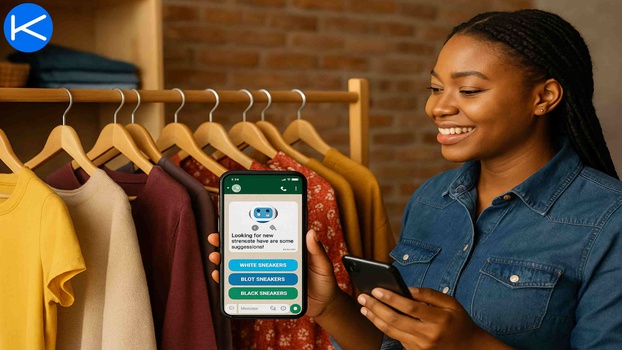
WhatsApp is the lifeline of digital communication in South Africa — it’s where we chat, buy, hustle, and even pay. So, it’s no surprise that WhatsApp chatbots are exploding in popularity, especially in townships and rural areas. For many small retailers in these areas, WhatsApp bots are the only digital tool they need to run their whole business.
A kasi shop selling clothes can now let customers browse the latest drops, check prices, and place orders all through a WhatsApp conversation. This removes the need for a fancy website or e-commerce store, which many small business owners can’t afford or manage. Customers love it because it’s simple, fast, and doesn’t require them to learn anything new.
WhatsApp chatbots also play a big role in building trust. When you chat with a store on WhatsApp and get a quick reply, it feels more human. People are more likely to buy when they feel seen and heard — especially in communities where face-to-face trust is still strong. WhatsApp bots, when done right, mimic this experience and help retailers grow their credibility.
And we mustn’t forget the data-light nature of WhatsApp. Unlike websites that chew through MBs, a chatbot conversation is light and affordable. This makes it perfect for users who rely on daily data bundles. Add to that Karabo.ai’s ability to build WhatsApp bots with local payment, delivery, and booking integrations, and you have a complete retail tool that fits the realities of township life.
Future Trends and Challenges Ahead
Looking forward, chatbots in SA retail will only become more advanced. We’re already seeing integrations with voice, video, and AR (Augmented Reality) tools that allow users to visualise products, ask questions out loud, and even get personal shopping guidance. As AI gets smarter and more localised, these features will become common in everyday retail experiences.
However, there are still challenges. Many business owners don’t yet fully understand the power of chatbots, or they fear that the tech will be too hard to manage. Education remains key. Platforms like Karabo.ai are stepping up with workshops, training videos, and live support to bridge this gap. But broader awareness campaigns are still needed — especially in informal sectors.
Another challenge is user data and privacy. As bots collect more customer information, retailers must be careful to store and use this data responsibly. South Africans are becoming more aware of digital rights, and brands that misuse or over-message risk losing trust. Compliance with POPIA and clear opt-in processes will be critical as chatbots grow in reach.
Finally, the future will demand more customisation and deeper integration with POS, CRM, and delivery systems. Retailers who want to win will need to treat chatbots not as a novelty, but as a core part of their business strategy. Those who do will enjoy better engagement, stronger brand loyalty, and a major edge over those still stuck in the past.
Conclusion

South African retail is not just evolving — it’s leaping into a smarter, faster, and more connected future. Chatbots, driven by platforms like Karabo.ai, are at the heart of this change. They’re helping businesses of all sizes talk to customers in new ways, close more sales, and build deeper loyalty. Whether in the heart of Sandton or the streets of Soshanguve, chatbots are breaking down barriers and opening up new opportunities for growth. The revolution is here. The only question now is: will your retail brand ride the wave or be left behind?

